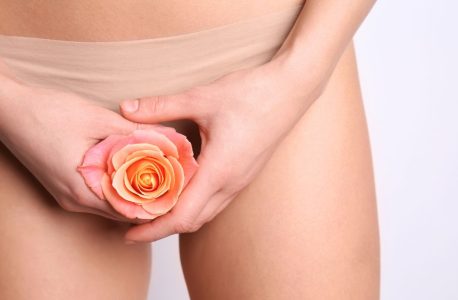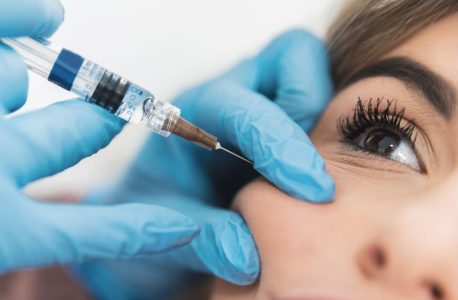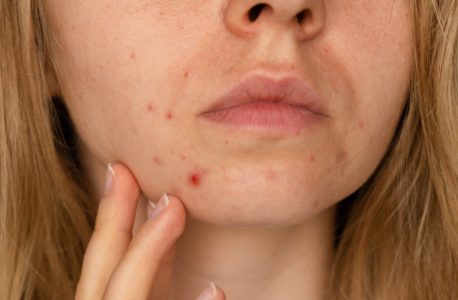Vaginal dryness can have various causes, but it can be treated. Find out how to solve this problem.
Vaginal dryness is responsible for irritation of the vaginal mucous membranes, the entrance to the vagina and the external genital area, causing unpleasant sensations such as burning, itching, pain, discomfort and an increased risk of vaginal and urinary infections.
Vaginal atrophy, or genitourinary syndrome, is characterized by various signs, with vaginal dryness being a very common problem among women, regardless of age. Closely associated with low estrogen levels, the problem of vaginal dryness can be very uncomfortable and have a negative impact on daily activities, particularly sex life. Find out how to solve this problem.
What causes vaginal dryness?
Vaginal dryness is a problem that can affect women of different ages and can have multiple causes. Vaginal lubrication is associated with estrogen levels, but vaginal dryness can have both physical and psychological causes.
Hormonal changes
Throughout a woman’s life, estrogen levels undergo various changes that can be related to altered menstrual cycles due to obesity, dieting, smoking, alcohol, depression, anxiety, breastfeeding, postpartum, menopause and surgery. Whenever there is a reduction in estrogen levels, vaginal dryness increases and there is a decrease in libido and sexual interest. There are also other conditions that impair estrogen production, such as chemotherapy, removal of the ovaries and radiation therapy in the pelvic region.
Contraceptive pill
Taking the pill and some medications, particularly antidepressants, can contribute to increased vaginal dryness, as they influence the levels of hormones produced by the body.
Anxiety and stress
The psychological and emotional state also influences sexual desire and vaginal dryness. Sadness, anxiety, stress and/or depression can lead to vaginal dryness and lower sexual desire.
Sexual activity
When a woman doesn’t experience pleasure or desire during sex, it’s natural to feel vaginal dryness. It is therefore important that she explores ways of increasing lubrication, such as foreplay, and discovers what makes her feel more aroused and stimulated.
What other symptoms can be associated with vaginal dryness?
The main symptoms related to vaginal dryness are:
– In the vagina:
- Burning;
- Dryness;
- Irritation;
- Itching
- Discomfort;
- Discharge;
– Urinary:
- Repeated urinary infections
- Pain when urinating
- Urinary urgency
– Sexual
- Pain during sexual intercourse.
How to increase female lubrication?
There are several ways to solve the problem of vaginal dryness. It all depends on the underlying cause.
When vaginal dryness is related to a decrease in estrogen levels, you can start by trying to solve this issue by using:
- Vaginal moisturizers: specifically formulated to treat the discomfort caused by vaginal dryness by mimicking a woman’s natural lubrication;
- Lubricating condoms: to make sexual intercourse easier, you can use condoms that already contain lubricant;
- Lubricating gel: which “replaces” natural lubrication and helps to intensify sexual pleasure.
Treatments for vaginal dryness
However, there are also treatments for intimate rejuvenation and to combat vaginal flaccidity that are also indicated for lack of lubrication. These treatments will help women to naturally increase their lubrication levels more definitively.
Here are some of these treatments:
- CO2 laser for vaginal dryness: this treatment acts on the vaginal walls, creating microlesions that will trigger the production of collagen, moistening, reaffirming and restoring the vaginal structure.
- Intimate radiofrequency for vaginal dryness: radiofrequency waves also stimulate the contraction of collagen fibers, promoting greater firmness in the treated area and natural lubrication.
How can vaginal dryness be prevented?
There are some measures that can help prevent vaginal dryness. Adopting the following behaviors is one way to do this. Take note!
- Do not wash the intimate area more than twice a day in order to maintain the balance of the vaginal flora;
- Sanitize the intimate area with a pH-neutral product that does not affect the acidity of the vagina;
- Do not use sanitary towels and tampons for a long time;
- Do not wear pants that are too tight and irritate the vulva;
- Favor cotton underwear;
- Engage in regular sexual activity in order to improve blood circulation to the genitals and prevent atrophy;
- Combat stress.
In addition, you should consult a specialist doctor who can assess the condition of your intimate area and offer you treatments that can improve this part of your body. To do this, book an appointment at the Living Clinic.
Responsible for the treatments

Dr. Manuela Montalvão is a specialist in Gynaecology/Obstetrics, with extensive training in different areas of the specialty, including Regenerative Gynaecology (Gynaeco-aesthetics), vulvar and vaginal laser application and intimate rejuvenation.
Schedule an Appointment
- Are you looking for more information about a specific treatment?
- Would you like to learn more about Living Clinic?
- Would you like to receive the opinion of our specialists?
- Are you interested in scheduling a consultation?






